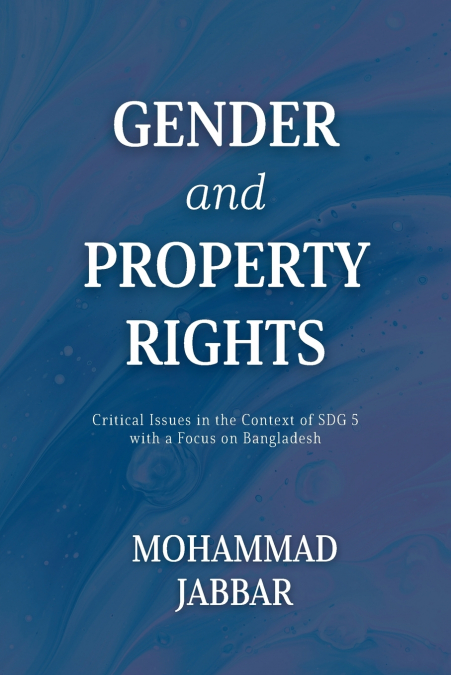
 Librería Desdémona
Librería Desdémona
 Librería Samer Atenea
Librería Samer Atenea
 Librería Aciertas (Toledo)
Librería Aciertas (Toledo)
 Kálamo Books
Kálamo Books
 Librería Perelló (Valencia)
Librería Perelló (Valencia)
 Librería Elías (Asturias)
Librería Elías (Asturias)
 Donde los libros
Donde los libros
 Librería Kolima (Madrid)
Librería Kolima (Madrid)
 Librería Proteo (Málaga)
Librería Proteo (Málaga)
On their list of 17 Sustainable Development Goals for all nations, the United Nations uses #5 'to achieve equality and empower all women and girls'. One of the nine targets under goal 5 is ’gender equality in the ownership of productive assets, especially land, by 2030'. When it comes to achieving gender equality in developing countries like Bangladesh, women and men’s equal access to property is generally seen as a goal that is universally desirable.But what if this were a wholly inappropriate metric for measuring and achieving gender equality by 2030 across diverse situations in the developing world-and Bangladesh in particular? This is exactly the case author and development expert Mohammad Jabbar makes in this impressive, thoroughly researched work of non-fiction. Among other acute insights, he argues SDG target on gender equality is asset ownership by 2030 may be ill-suited for the rural Bangladeshi context because of . . . • The inappropriate use of the concept of 'household' over that of 'family' as a survey unit for measuring its attainment • The potential for the creation of superfluous junk statistics for monitoring progress that measure ownership and use rights not indicative of actual gender (in)equality • The general lack of understanding it displays of local laws, customs and norms of gender, inheritance, and other vital concepts related to asset ownership.Thoughtful in its conception and precise in its execution, this carefully argued piece of academic research is sure to make a useful-even necessary-addition to the bookshelves of anyone interested in development and gender equality, whether they be academics, policymakers, researchers, students, or laypeople.